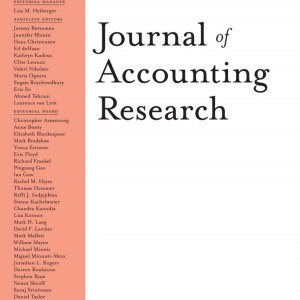
Maas, V. and \van Rinsum\, M. (2013). How control system design influences performance misreporting Journal of Accounting Research, 51(5):1159--1186.
-
Affiliated author
-
Publication year2013
-
JournalJournal of Accounting Research
This paper investigates reporting honesty when managers have monetary incentives to overstate their performance. We argue that managers who report about their performance will take into account how their report affects their peers (i.e., other managers at the same hierarchical level). This effect depends on the design of the organization's control system, in particular, on the reward structure and the information policy regarding individual performance reports. The reward structure determines if peers{\textquoteright} monetary payoff is increased or decreased when managers claim a higher level of performance. The information policy determines if managers will be able to link individual peers to their reports and affects the nonmonetary costs of breaking social norms. We present the results of a laboratory experiment. As predicted, we find that participants are more likely to overstate their performance if this increases the monetary payoff of others than if their reported performance decreases others{\textquoteright} monetary gains. In addition, overstatements are lower under an open information policy, where each individual's reported performance is made public, compared to a closed information policy, where participants only learn the average performance of the other participants. Our findings have several important implications for management accounting research and practice.